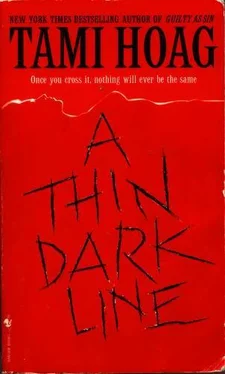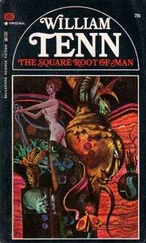She hung her head a little lower, her curtain of dark hair falling to hide her face. When she finally spoke, her voice was tiny and trembling. "I… I really miss my mom."
Annie reached out with a paw and gathered Josie close to her side. "I know you miss her, sweetheart," she said against the top of Josie's head. "I know exactly how much you miss her. I'm so sorry any of this had to happen to you."
"I want her back," Josie sobbed out against the trench coat. "I want her to come back and I know she's never going to and I hate it!"
"I know you do, honey. Life shouldn't have to hurt so much."
"Sister Celeste says I sh-shouldn't be mad at G-God, but I am."
"Don't you worry about God. He's got a lot to answer for. Who else are you mad at? Are you mad at me?"
The little girl nodded.
"That's okay. But I want you to know I'm doing my best to help, Jose," she murmured. "I promised you I would, and I am. But you have every right to be mad at whoever you want. Who else are you mad at? Your dad?"
She nodded again.
"And your grandma?"
Another nod.
"And Grandpa Hunt?"
"N-no."
"Who else?"
Josie went still for a moment. Annie waited, anticipation born of hard experience thickening in her chest. A desultory breeze stirred the heads of the pansies. A painted bunting flitted down from an azalea bush to pluck at a crust of bread some child had peeled from a lunch sandwich and abandoned.
"Who else, Jose?"
The answer came in a small voice brimming with pain. "Me."
"Oh, Josie," Annie whispered, hugging her tight. "What happened to your mom wasn't your fault."
"I-I w-was g-gone to Kristen's h-house. Maybe if-if I h-had been home…"
Annie listened to the stammered confession, feeling nine years old inside, remembering the horrible burden of guilt no one had even suspected she carried. She had been with her mama always, had watched over her during the bad spells and prayed for God to make her happy. And the first time she'd gone away from home, Marie had ended her own life. The weight of that had pressed down on her until she thought it would crush her.
She remembered going down the levee road, the taste of bitter tears as she had thrown her stuffed Minnie Mouse into the water. The toy she had so cherished from her first-ever vacation trip, the trip that had marked the end of her mother's life. And she remembered Uncle Sos fishing the toy out of the reeds and sitting on the bank with her on his lap, both of them crying, the soggy Minnie Mouse squished between them.
"It wasn't your fault, Josie," she murmured at last. "I thought that, too, when my mom died. That maybe if I had been home I could have stopped it from happening. But we can't know when bad things are coming to our lives. We can't control what other people do.
"It's not your fault your mom died, honey. That's someone else's fault, and he's going to be made to pay. I promise. All I ask is for you to believe me when I tell you I'm your friend. I'll always be your friend, Josie. I'll always try to be here for you and I'll always try my hardest for you."
Josie looked up at her. She tried to smile. "Then how come you're dressed up like a dog?"
Annie made a face. "A temporary setback. It won't last. I'm told I make a crummy crime dog."
"You were pretty bad," Josie admitted. She wrinkled her nose in distaste. "You smell really gross, too."
"Hey, watch the insults," Annie teased. "I'll sic all my fleas on you."
"Yuck!"
"Come on, munchkin," she said, standing slowly. "I'll walk you downtown. You can help me carry my head."
Lake Pontchartrain shone metallic aqua, as flat as a coin and stretching north as far as the eye could see, bisected by the Pontchartrain Causeway toll bridge. Several boats skimmed the surface in the middle distance, their pilots playing hooky from the usual Monday rigors of work. The view from this stretch of shore was expensive. Real estate along this part of the lake was in the category of "if you have to ask, you can't afford it." Duval Marcotte could afford it.
His mansion was Italianate in design, looking like something that would be more at home in Tuscany than Louisiana. Soft white stucco and a red tile roof. Straight, elegant lines and tall slim windows. An eight-foot-tall wall surrounded the property, but the iron gates stood open, affording passersby a view of emerald lawn and lavish flower gardens. A black Lincoln Town Car sat in the drive near the house. A surveillance camera peered down from atop a gatepost.
Nick drove past and circled around. The service entrance stood open, as well. A florist's van sat near the kitchen entrance of the house with its doors gaping wide. Nick parked his truck outside the gate and walked to the house, grabbing an enormous arrangement of spring flowers out of the van.
The kitchen was a hive of activity. A thin woman was overseeing two aproned assistants in the making of canapes. Two more women were unloading trays of champagne glasses onto the granite top of another work island. A brawny boy of twentysomething emerged from a door with a case of champagne and carried it to a table at the direction of a small effeminate blond man in gold-rimmed glasses, who then swung toward Nick. "Take that to the red parlor. It goes on the round mahogany table near the fireplace."
A maid swung the kitchen door open for him.
He had been in this house twice and had memorized the layout, could see in his mind's eye every stick of antique furniture and every painting that hung on the walls. The red parlor was on the left at the front of the house, a room that looked as if it might have hosted Napoleon, the decor Second Empire, ornate and ostentatious.
Nick set the arrangement on the round mahogany table and walked quickly down the hall of the east wing, his running shoes all but silent against the polished floor. He bypassed the main staircase in favor of the stairs at the far end of the hall. Marcotte's office was on the second floor of the east wing. A man of habit, he worked from home Mondays and Fridays. Business associates Marcotte wouldn't be seen with at his offices on Poydras Street in the central business district of New Orleans came to his home on a regular basis. Nick thought of the Town Car in the drive and frowned.
He would have been better off waiting, coming in late to surprise Marcotte in his bed, but that would have given Marcotte too good an excuse to shoot him or have him shot as an intruder. He was here for business, not revenge, he reminded himself as he ducked into a bathroom and shut the door behind him.
He stared at himself in the mirror above the pedestal sink. He wore a loose-fitting black sport coat over his white T-shirt, the cut of the jacket hiding the shoulder rig and the Ruger P.94 semiautomatic. His color was high along his cheekbones. His pulse was pounding a little too hard, and anticipation coated his mouth with a taste like copper. He hadn't seen Marcotte in more than a year, hadn't planned to see him ever again. He had done his best to close the door on that chapter of his life, and now he found himself sneaking back through it.
Closing his eyes, he breathed deeply, filled his lungs, and tried to still his mind. Calm, center, focus. Why was he here? Nothing visible tied Marcotte to the Bichon case. He had checked out every New Orleans number on Donnie's phone records from before the murder, finding no direct link to Marcotte. A relief. He didn't want to strengthen Donnie's motive for killing Pam when he knew in his gut Renard was the murderer. If Donnie had contacted Marcotte after Pam's death, Nick had no way of knowing. There was no cause to confiscate Bichon's phone records for that period of time. And if Donnie had contacted Marcotte after the fact, that took Marcotte out of the loop for the murder.
Читать дальше












